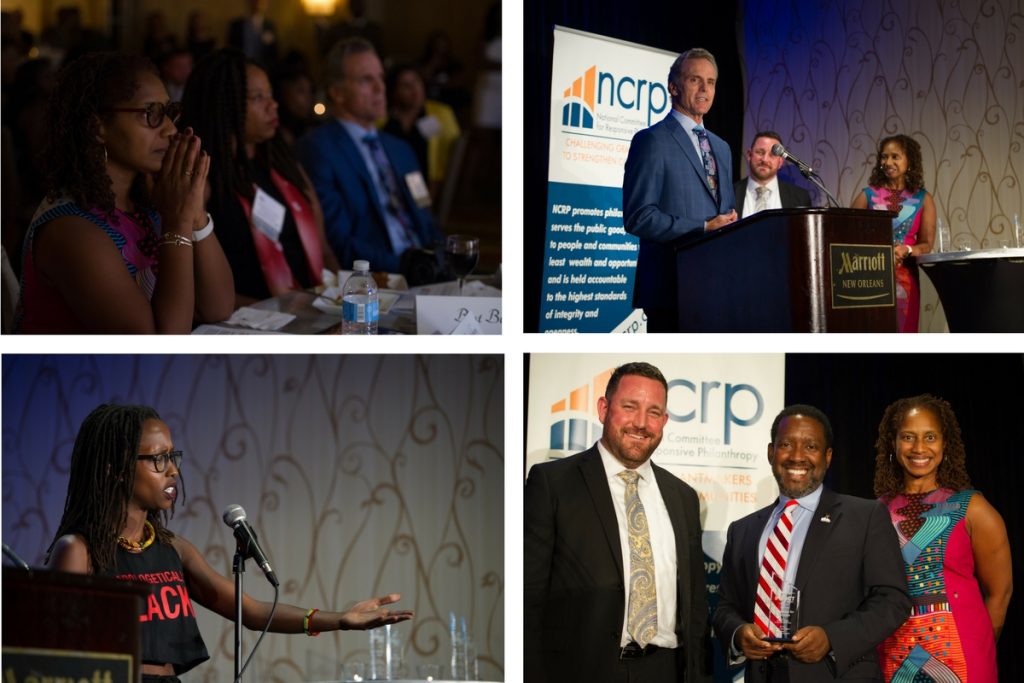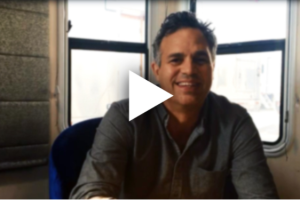In January 2018, I had the opportunity to visit the U.S.-Mexico border near San Diego with the grantees of The J.M. Kaplan Fund’s Innovation Prize. Among the vibrant paintings on the border fence near Tijuana, there is a mural of an upside-down U.S. flag created by a group of deported veterans to symbolize the distress of their plight.
These immigrant veterans, many of whom were honorably discharged, were deported based on convictions for crimes that occurred after their service. Like many soldiers, these deported veterans deal with post-war trauma, unemployment and other economic stressors, which often lead to their encounter with the criminal justice system.
However, unlike U.S. citizen soldiers, their convictions lead to their deportations, a result of the harsh 1996 immigration laws that expanded mandatory detention and deportation for a vast list of crimes deemed “aggravated felonies.” These laws overhauled immigration enforcement and laid the foundation for the enormous deportation machine that now exists in this country.
The system of mass deportation depends on the punitive and racial discrimination at the heart of the criminal justice system, the foundations of which were laid during the 1980s war on drugs. The policies passed during this time perpetuated racial discrimination against African-Americans leading to the mass incarceration we know today.
This steep rise in mass incarceration during the last 40 years has greatly affected the lives of racially marginalized communities, especially Black and Latinx Americans who together constitute 59 percent of the prison population. This punitive transformation of the domestic policy has permeated the immigration enforcement system, which criminalizes the immigrant population by making their mere existence in the country “illegal.” This has gone hand-in-hand with a proliferating narrative that sees all immigrants as “others” — “criminals,” “gang-members” or “terrorists” who need to be penalized and discarded.
The immigration policies introduced by the Bush administration after 9/11 were dominated by a national security lens. This gave rise to new border security and law enforcement initiatives that increased the use of state and local law enforcement for immigration. With increased enforcement, the budget and staff of the enforcement agencies also rose dramatically, almost doubling within the next decade.
Obama’s “felons, not families” policy prioritized the deportation of undocumented immigrants with criminal histories. These policies have not only criminalized whole communities of people but have pitted them against each other. Immigrant communities have defensively tried to separate themselves from the so-called “criminal” population by exceptionalizing themselves as hard working and entrepreneurial.
Of course, an entire population of millions cannot be all “exceptional” or all “criminal.” The punitive policies and rhetoric also ignore the fact that those charged with crimes may also have families and that they are most often incarcerated because of the disproportionate racial targeting by law enforcement. Black immigrant communities, for example, make up only 7 percent of the immigrant population in the U.S., but represent 20 percent of immigrants facing deportation on criminal grounds.
Since January 2017, the Trump administration has brought an unrelenting series of policy changes, which have tremendously affected the lives of immigrants, refugees and asylum seekers. The new policies have greatly affected the foreign-born residents of the country, with the banning of majority-Muslim country nationals; with biased and escalated immigration enforcement; and the termination of Deferred Action for Childhood Arrivals and many Temporary Protected Status programs.
The relentless anti-immigrant rhetoric coming from the Trump administration has also created a climate of xenophobia, Islamophobia and fear. More than ever, immigrants and their families across the country live in fear of being detained, deported or subject to hate crimes.
In the last decade, we have seen growing pushback against mass incarceration as well as bipartisan support for criminal justice reform. Nonetheless, we have also seen the same carceral practices reflected and replicated in the immigration space. Immigrants face growing incarceration through escalating detentions and are overrepresented in prisons and profiled by law enforcement.
The private companies profiting from mass incarceration within the criminal justice system are also profiting from detention of immigrants, and have received the boon of a congressionally mandated bed quota of 34,000 immigration detention beds on a daily basis.
In these historic and challenging times, there is a tremendous need to center our analysis of these issues within the lens of “mass criminalization” of communities of color. We have a unique opportunity to connect immigrants to growing activism around decarceration, divestment and restorative justice that challenges discriminatory policing, racial profiling and prison privatization.
Immigrant justice advocates and those leading the struggles against mass incarceration are already leading collaborations. We, as funders, also need to challenge ourselves to come out of our siloed areas and enhance our understanding of how these systems connect and affect all impacted communities.
J.M. Kaplan Fund’s Social Justice program focuses on supporting immigrant-serving organizations and those working to transform the criminal justice system. The fund also supports organizations that serve individuals impacted by both criminal justice and the immigration enforcement systems.
It is now time to unite the goals, the learnings and the struggles that are led by and focused on those who are directly affected by the deep tentacles of systems addicted to criminalization and incarceration.
Prachi Patankar joined the J.M.Kaplan Fund in 2017 as the program director for social justice. She plays an instrumental role in shaping the foundation’s grant making strategies for criminal justice reform and immigrant rights work, locally and nationally. Follow @PatankarPrachi and @TheJMKaplanFund on Twitter.
Photo by Jobs For Felons Hub. Used under Creative Commons license.




 7.
7. 

 4.
4.





